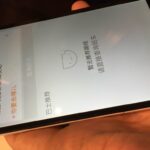THE European Commission has rejected Chinese trade association statements that talks to resolve a dispute over allegations of dumping of solar panels had broken down, while Chinese comments highlighted risks the dispute could escalate.
European Union regulators agreed to impose solar panel duties earlier this month following an investigation launched after a complaint by German firm SolarWorld.
The dispute has the potential to impact 21 billion euros (US$27.1 billion) worth of imported Chinese solar panels, cells and wafers from manufacturers such as Trina Solar, Yingli Green Energy and Suntech Power Holdings.
A Chinese industry association authorized to represent the domestic solar companies said in Beijing on Wednesday that it had made an offer during a visit to Brussels but was rebuffed by the commission.
"These claims are simply wrong and misleading for one simple reason - no formal negotiations are yet ongoing between the EU and China in the solar panel anti-dumping case," EU trade spokesman John Clancy said in a statement.
The China Chamber of Commerce for Import and Export of Machinery and Electronic Products said on its website: "Because the European side did not show sincerity to solve the problem through negotiations, this first round of negotiations ended in no result and broke down."
Clancy responded: "These technical preparatory talks have nothing to do with a proper negotiation."
The chamber made an offer for producers to voluntarily raise their prices to avoid duties during informal talks last week, a Chinese source familiar with the talks revealed.
He said EU regulators had insisted that they would accept only a price level consistent with the amount regulators say Chinese firms undercut European producers, which would amount to a markup of 47 percent. "If they have carried out their tariff and they still insist on the high level of the price offer, then there is no need for us to negotiate, and China will have to respond in another way."
China says the duties would seriously harm trade ties and it is expected to decide in June whether to levy its own duties on imported European solar-grade polysilicon, a raw material used in solar panel production.










